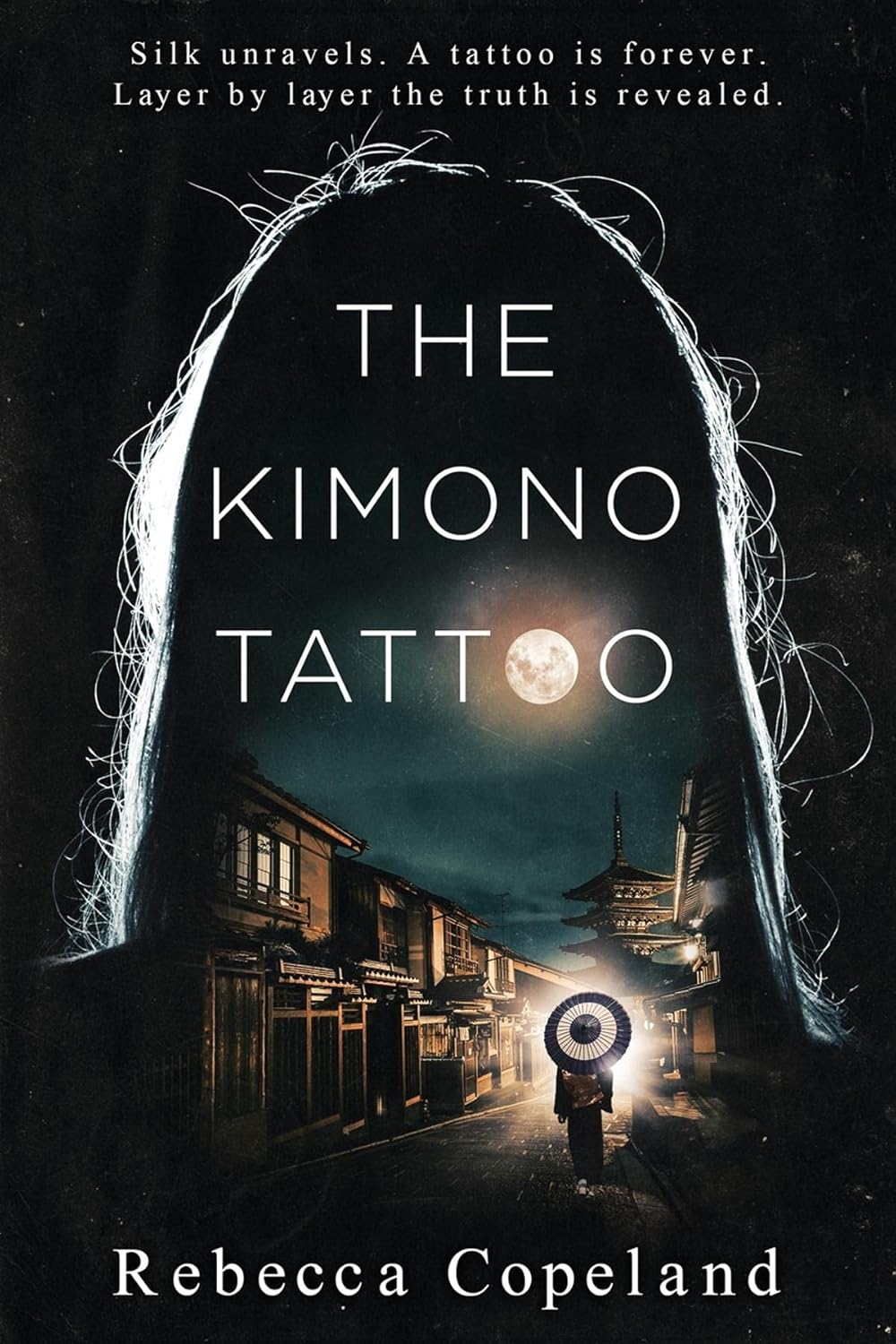
(Brother Mockingbird, 2021)
Many themes come together in this complex novel about a famous kimono, the design of which is transformed into a tattoo inscribed on a beautiful woman, the daughter of a famous kimono-designing family in Kyoto. The main character of the story, an American woman with a tragic event in her childhood in Kyoto as the daughter of missionary parents, comes upon the story of this family and how it went off the rails. Earlier, she translated a Japanese novel about a kimono that was seemingly cursed and responsible for several deaths. Suddenly she becomes involved with the story in a much more intense way, and also confronts the tragic event in her past.
The themes include: the lineage of kimono design and creation in Kyoto, along with the problems of traditional family heritage and what happens when it is disrupted; the related theme of gender equality and what happens when it is discounted; the role of woman in Japanese society as supplier of heirs and what happens when a woman who subscribes wholeheartedly to this role is torn away from it. It is evident that the author feels strongly about these themes, and at the center is the question of the continuation of an old and respected family — to what extent are the men, and especially the women, of this family prepared to continue with its traditions?
There is also the motif of the blending of reality and fiction, with the book-within-a-book which has been translated by the protagonist turning out to shed light on the story of the traditional kimono-designing family. There is also plenty of detail about kimono and tattooing, not to mention the city of Kyoto itself, with a wealth of geographical detail especially about the area around Okazaki, Nanzenji and the Philosophers’ Walk. It is easy for anyone familiar with this area to imagine the action. A look at a map of Kyoto will readily be the source of visualization for others. The author makes sure that the reader will see the scenes in the mind’s eye.
The writing is rich in details; from these it is evident that Rebecca Copeland has lived a life in Kyoto very similar to that of her protagonist. Exquisitely described scenes such as an evening walk home through little streets and alleyways — “I could smell the dinner preparations in the houses I passed along the way… Here and there I caught a whiff of mosquito smudge or heard the splash of water being readied for the evening bath.”
This is a book with many characters. There are the “real” characters surrounding the protagonist; the fictional characters within the novel she translated; and even some historical ones from the rich tradition of kimono making in Kyoto. I myself had to stop and make notes to keep them straight, but that is probably not necessary for everyone; the story line carries us along, now dipping into the everyday life of the protagonist as she goes about her work in a translation company, her meals and relaxation, now telling us snippets about such things as traditional tattooing or the breeding of the ferocious Tosa fighting dogs of Shikoku.
The tragedy at the center of the protagonist’s early life is unravelled, taking center stage toward the end and revealing some surprising connections. Some broken relationships are repaired and other new ones blossom, all in the shadow of the central, etherically beautiful kimono and its superbly wrought tattoo.
**********************
Rebecca Copeland is a writer of fiction and literary criticism and a translator of Japanese literature. Her stories travel between Japan and the American South and touch on questions of identity, belonging, and self-discovery. Her academic writings have focused almost exclusively on modern Japanese women writers, and she has translated the works of writer Uno Chiyo and novelist Kirino Natsuo. Copeland was born to missionary parents in a Japan still recovering from the aftermath of war. As a junior in college, Copeland had the opportunity to spend a year in Japan, where she studied traditional dance, learned to wear a kimono, and traveled. Afterwards she earned a PhD in Japanese literature at Columbia University, and she is now a professor at Washington University in St. Louis. The present work, The Kimono Tattoo, is her debut work of fiction. More information may be found on her website, rebecca-copeland.com.
